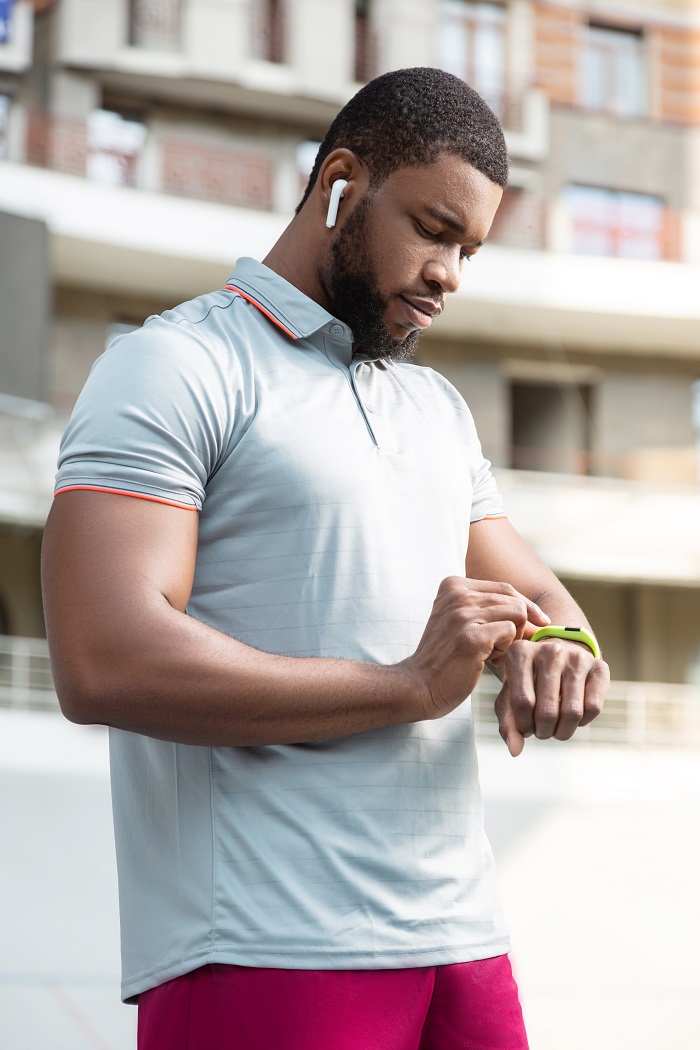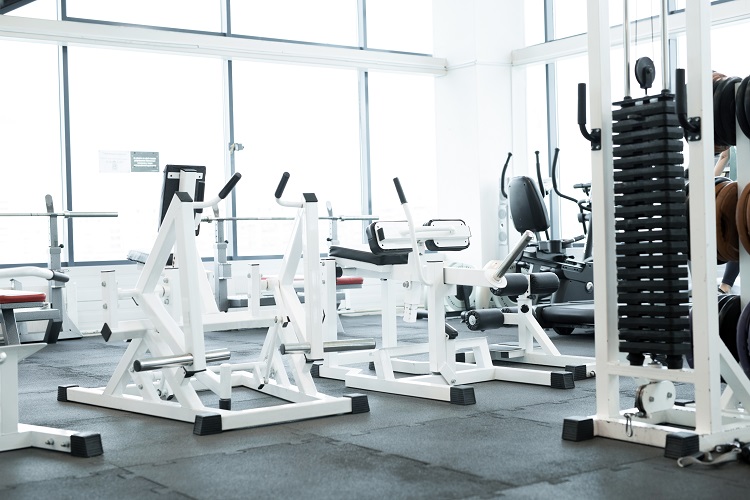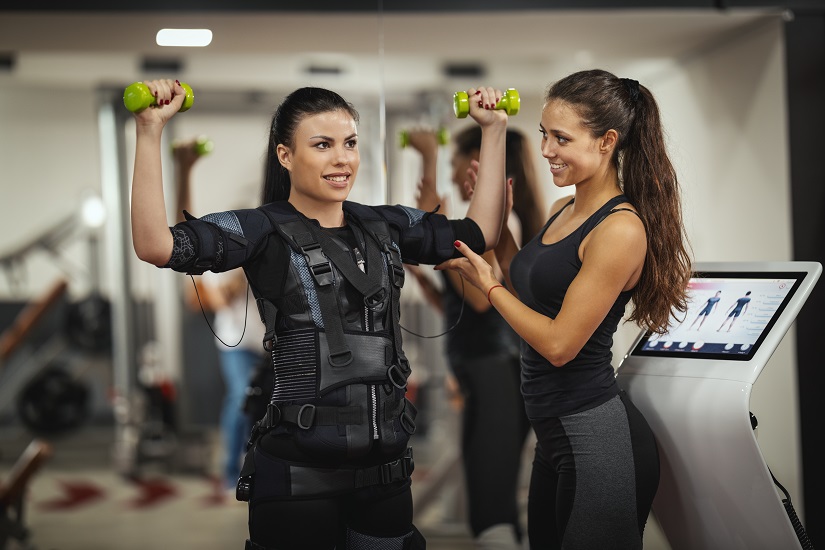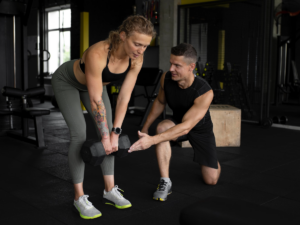Thrive at your PT Interview
HOW TO PREPARE FOR AND PERFORM DURING A PERSONAL TRAINING INTERVIEW
FOUR FUNDAMENTALS
-
Being fully prepared is essential - do your research about the company, the job role, and key staff members.
-
Practice answering potential questions out loud, but also practice physical PT skills you may be required to demonstrate.
-
Research fitness industry news over the last 2-3 months to be sure you are up to date with current trends and key issues. Particularly check if the business you are interviewing for has been in the local or national news.
-
Plan one or two well-thought out questions to ask regarding the job role or the fitness business to show genuine interest in the growth and future success of the company.
While the majority of personal trainers in Europe are self-employed, the ultimate goal of a newly qualified Level 4 personal trainer may be to successfully land a job with an established fitness gym or PT studio. Working as an employed PT provides some financial security and also gives the PT access to a captive target audience in the gym members already attending the club. In addition, an employed job may come with other benefits, such as paid annual leave, a pension plan, and full personal usage of the fitness facilities.
It is standard practice for employed PT roles that applicants will be shortlisted to attend a job interview. Therefore, it would be wise to be fully aware and prepared to present your best self at a formal interview. Becoming familiar with a few critical points about typical fitness interviews could help move things forward in a positive manner.
TEN KEY CONSIDERATIONS

A personal trainer does not need to have the stereotypical lean and muscled appearance, although it may be helpful in some circumstances. After all, there are so many ways that fitness can be applied and therefore, physical stature and physique can vary considerably.
However, this is a job all about health and fitness and motivating the members and clients you will serve. Therefore, a personal trainer will need to have a love of fitness in some form or discipline. Maintaining a good level of fitness relevant to your chosen fitness preferences is important. PT’s should always be an example of good practice and this must be obvious at a job interview.

Wearing a suit and tie for a personal trainer job interview is usually not necessary, though being fully suited will not harm your chances as it shows you are striving to present well. Dressing in workout clothes, however, will likely hinder your chances of being offered the position. Instead, opt for smart casual clothing that is a level above normal everyday clothing and helps you to presents a professional flair.
Bringing a change of workout clothing may be wise in case there is a practical component to the interview process. Be sure to have clean and presentable workout clothing and shoes too.

Whilst many fitness centres cater for a broad audience with diverse fitness interests, some gyms may have a specific target niche and therefore attract specific types of client. It is important to be aware if there is a dominant type of member or if the gym itself promotes any specific type of fitness as their primary focus.
For example, a boutique fitness studio may focus on selling personal training to middle and older age clients and therefore needs to attract a personal trainer who has the skills necessary to adapt to the potential health barriers and fitness limitations of this type of member.
By knowing the target audience and fitness preferences of the gym in advance, you can be better prepared to answer questions about how you would devise a workout for their preferred type of client.
 The fitness industry is constantly changing and evolving. It has progressed through a wide range of trends, some that have remained and others that have faded away. Most fitness clubs will try to meet the demands of their membership and will likely seek to adapt their fitness offering to keep in line with current trends.
The fitness industry is constantly changing and evolving. It has progressed through a wide range of trends, some that have remained and others that have faded away. Most fitness clubs will try to meet the demands of their membership and will likely seek to adapt their fitness offering to keep in line with current trends.
Prepare to discuss your familiarity and past experience with current and ongoing fitness trends during the interview.
There is a wide range of different personal training certifications around the world, each developed to a different set of professional criteria and educational standards. Therefore, it is important to know and be aware of the strengths of the PT certificate you have achieved in comparison to other programmes. This knowledge will enable you to highlight your unique knowledge and skills during interview. If you have received a level 4 certification from an independently accredited PT programme, then this is worth highlighting as it guarantees your qualification meets the required professional standards of competency.
 A great benefit of the internet is access to a vast range of information. A thorough online search may help in discovering the answers to some of the commonly-asked questions for a fitness interview.
A great benefit of the internet is access to a vast range of information. A thorough online search may help in discovering the answers to some of the commonly-asked questions for a fitness interview.
Some examples of a few questions to research may include:
● “What steps and actions would you apply to help grow your personal trainer client base?”
● “Please describe your personal training philosophy?”
● “What do you see as current and relevant trends in the field of personal training?”
There are many other questions that could be asked, but the time and effort invested to be better prepared to answer a range of questions, the more confident you will be in your responses. Appropriate confidence is an important component for success as a personal trainer.
Role play a mock interview with friends or family asking the questions. Work on delivering clear and well-balanced answers. This will help iron out any hesitation or stumbling in your answers when the real interview arrives. The manner in which you deliver the answers to the questions is just as important as the content of the answers.

Record a mock video interview with a friend or family member acting as the interviewer. Reviewing the video afterwards can be useful reflective feedback to try and improve your performance. Some factors to consider include:
- How do you present yourself during the interview? Nervous? Confident? Uncertain?
- What questions did you answer well? Which need more practice?
- What position or posture did you tend to adopt for the majority of the interview? Are any changes needed?
- Do you maintain an appropriate amount of eye contact with your interviewer?
- Did you develop any two-way discussion? Or was it only question and answer?
- Any other observations that need addressing?

Ensure you are prepared to demonstrate your practical personal trainer skills if required. This may include discussing examples of your programme design skills as well as coaching a team member through a short component of a fitness training session.
The employer will likely want to examine your knowledge, coaching methods, safety awareness, and instructional style and skills. A live demonstration of your skills and abilities will provide the employer with a real-time showcase of what you are capable of. This may provide the final piece in the puzzle to determine if you will be a good fit for their business.
 Personal trainers who embody professionalism and can support an application with with good, reliable recommendations from previous gym or fitness employers may stand out in the eyes of an interviewer.
Personal trainers who embody professionalism and can support an application with with good, reliable recommendations from previous gym or fitness employers may stand out in the eyes of an interviewer.
New personal trainers without past working experience may request a course tutor or a training partner to be a character reference. Be sure to obtain permission to list your referees in advance.
Clearly printed referee contact information should be kept to hand to provide to an employer if requested during an interview. It would be important to inform a potential employer that you can provide references if they need them, even if they do not ask during the interview.
 As a final element to the interview process, it may be valuable to email a short message of gratitude to the lead interviewer for the opportunity to meet them and for the positive interview experience. This may be seen as a thoughtful gesture that may help to set you apart from other interview candidates.
As a final element to the interview process, it may be valuable to email a short message of gratitude to the lead interviewer for the opportunity to meet them and for the positive interview experience. This may be seen as a thoughtful gesture that may help to set you apart from other interview candidates.
While emailing a brief thank you message the day after an interview won’t guarantee a job offer, every little contribution to the cause is helpful. It will also keep you in the mind of the employer a little longer as they consider the potential candidates.

 NASM
NASM